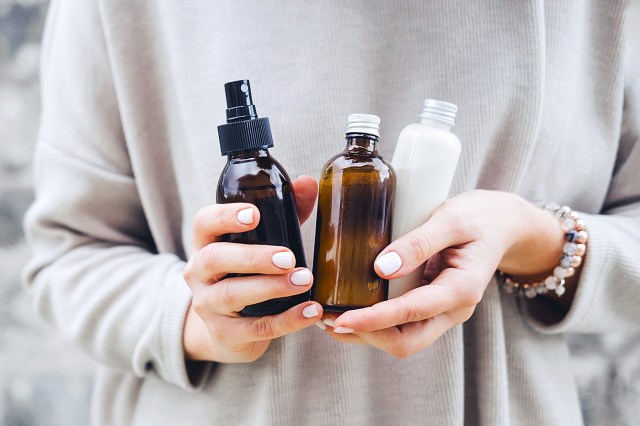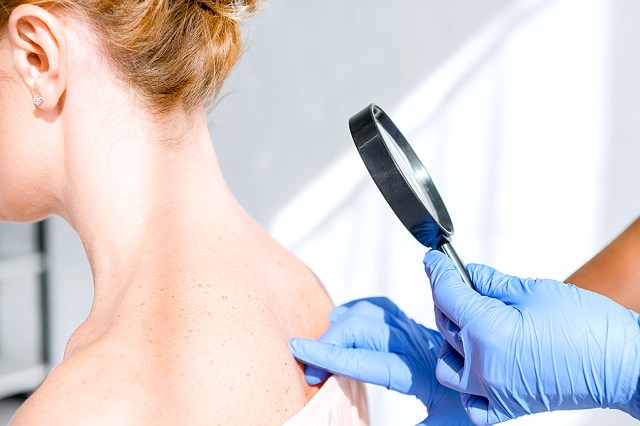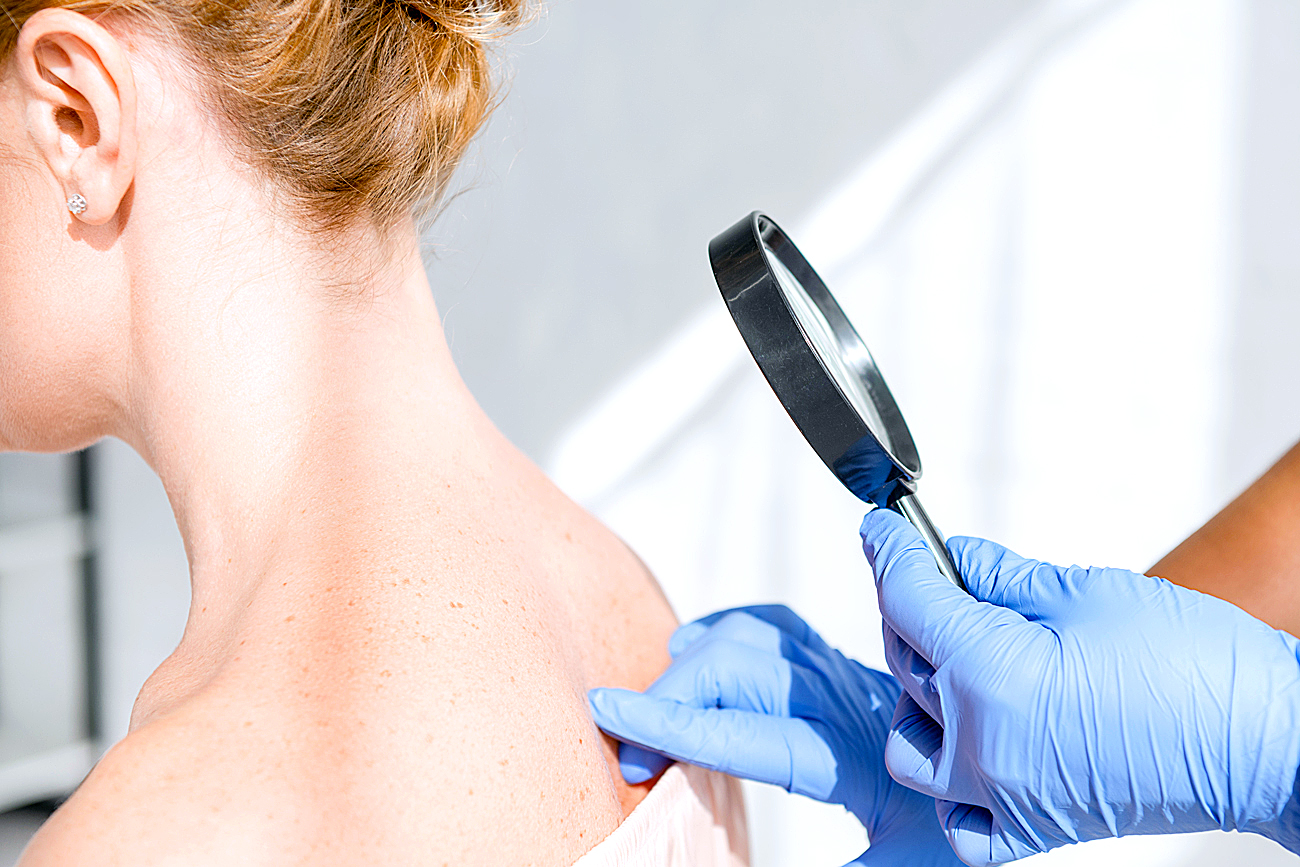We independently evaluate all recommended products and services. If you click on links we provide, we may receive compensation.
In their line of work, dermatologists spend a good chunk of their days fielding questions from patients who want to know how to help their skin look its best. And it’s understandable — that’s an important part of their job. But if you’re spending the duration of your appointment only asking your derm how to banish wrinkles or disappear dark spots, you may be missing out on an opportunity to dive a bit deeper. In fact, there are plenty of questions dermatologists wish they were asked more frequently.
We polled four dermatologists on the No. 1 question they wish their patients would ask — and their answers might surprise you. See what they said, below, and remember to keep these questions in mind at your next annual visit.

1. "How Long Will It Take for My Skin Care Products To Work?"
Product marketing may have you convinced that great skin care products can work their magic overnight, but according to double board-certified dermatologist Dr. Karan Lal, that’s often not true. The skin takes about six weeks to turn over, he says — and expecting drastic results before then may leave you feeling disappointed. Generally, he explains, you’ll want to give it “a full three months before making an assessment.” Some ingredients, such as salicylic acid, can produce more rapid results — but you’re still unlikely to see the full benefit of a new product or routine for at least six weeks. So if you’re starting a new product and want an idea of how long to wait before deciding whether it’s worth keeping in your routine, ask your dermatologist.

2. "Am I Doing Too Much?"
“The No. 1 thing I wish people would ask me is: Am I doing too much?” NYC-based dermatologist Dr. Sapna Palep says. The answer, in her experience, is almost always yes. “I call it the Sephora Syndrome,” she jokes. “I’ll see people come in with acne breakouts, rosacea breakouts, perioral dermatitis — and it’s because they’re using too many products.” A simple routine is often the best approach, she adds. “‘Less is more’ is definitely true when it comes to the skin.”
Keep in mind that everybody’s skin is different, and what works for your best friend or sister might not work the same for you. If you’re having trouble putting together a skin care routine that addresses your concerns, ask your dermatologist. They can help you identify the daily essentials, and offer guidance on what products are better used in moderation.

3. "Am I Doing Enough?"
While less is definitely more where skin care is concerned, there are a few things everybody should do every day to maintain healthy-looking skin. This includes moisturizing, wearing sunscreen, and cleansing — the latter of which, dermatologist and Harvard Assistant Professor Dr. Abigail Waldman says, a surprising number of people skip. “A lot of the skin conditions [I see] are actually a reaction to under-washing rather than over-washing,” she says. Another skin care habit people tend to under-do rather than overdo has to do with sunscreen application. SPF is a must , rain or shine, and you need to reapply it every two hours (at least) when you'’re getting repeat sun exposure. So if you’re not sure whether your skin care routine is up to snuff, ask your dermatologist.

4. "How Do You Care for Your Skin?"
Dermatologists live and breathe skin care (metaphorically, anyway) — and most of them try a lot of products. Naturally, they have a pretty good read on what’s actually worth your money. That’s a big part of why Epoch Dermatology founder Dr. Nicole Lee says she wishes more patients would ask her about her personal favorite products and procedures. (For the record: Dr. Lee bestows this honor to Aveeno Calm + Restore Oat Gel Moisturizer, a “gel-cream moisturizer that hydrates the skin [and gives it] a dewy finish.”)

5. "Can You Help Me Decode This Formula?"
Skin care can be “so complicated — even as a dermatologist it’s overwhelming,” Dr. Palep admits. You may have done your research and found products with derm-approved ingredients, but that’s only one part of the picture. In fact, she says, one of the most important things to consider when shopping for skin care products isn’t the ingredients at all, but the formula in which they’re being delivered.
All skin care products are either water-based or oil-based, and it’s not always clear from how a product looks or feels which category it falls under. But knowing what types of formulas you’re using is a key part of getting the best results from your routine. So if you’re not adept at reading product labels — and let’s face it, few of us are — it’s a good idea to ask your derm for help decoding your product labels before integrating new buys into your routine.
This article is for general informational purposes only.
Affiliate Disclaimer Medical Disclaimer
















 Unique Beauty is free for all users.
Unique Beauty is free for all users.